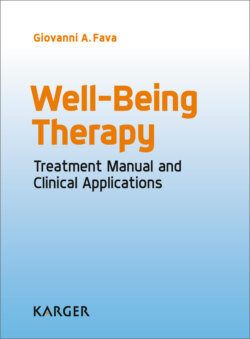Читать книгу Well-Being Therapy - G.A. Fava - Страница 11
На сайте Литреса книга снята с продажи.
Treating Depression
ОглавлениеI started my residency training program in psychiatry in Padova, but my idea was to go back to Rochester to complete my training. Due to certain circumstances that in those days I judged to be unfavorable, I ended up instead in Albuquerque, New Mexico. My teacher and mentor was someone I had met at a psychosomatic conference, Robert Kellner. He had become a psychiatrist after several years as a primary care physician and thus shared something in common with George Engel. He really showed me how the psychosomatic approach could balance pharmacological and psychological therapies in psychiatric practice. Depression was the psychiatric disorder that attracted my attention the most. After 1 year in the southwestern US, I moved to Buffalo, New York, where I was asked to establish a depression unit. I was convinced that depression was essentially an episodic disorder, that there were powerful remedies against it (antidepressant drugs), and chronicity was essentially a consequence of inadequate diagnosis and treatment. Today when I look back on of my views then, I am surprised of my naiveté and clinical blindness. We have become aware that depression is essentially a chronic disorder with multiple acute episodes along its course [7]; however, back then my view was shared by almost every expert in the field.
Working in the US, I had essentially a cross-sectional view of the disorder (I was seeing and treating patients only in the hospital, with little follow-up). However, when I decided to go back to Italy and establish an outpatient clinic at the University of Bologna with opportunities for follow-up, I began to observe that patients I had personally treated with antidepressant drugs and whom I judged to have completely remitted relapsed into depression after some time. What was I missing?
